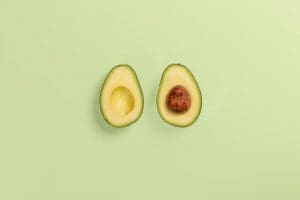Nutrients are categorized by dieticians as the essential substances humans require for their day-to-day growth, maintenance, and repair of the body. Experts currently divide them into six key nutrients necessary for a healthy human diet. These are four macronutrients – fat, protein, carbohydrates, water, and two micronutrients encompassing minerals and vitamins. The first four are macronutrients since they make up a significantly larger part of our diets than the latter two. Essential minerals and vitamins, in comparison, are only needed in trace amounts, though that does not mean they are any less vital. Each of these nutrients is elaborated on slightly in this article.
Table of Contents
Carbohydrates
Carbohydrates are your body’s primary energy source. They are divided into three types, sugars, fibers, and starches. Fiber is also key for promoting strong digestive health. Previously, nutritionists have argued that “complex” carbohydrates, such as brown bread, are healthier since they contain more fiber and make you feel full for longer. However, in real terms, there is little evidence to suggest that they are more nutritious other than their higher levels of fiber. Sugar should naturally be avoided as a major source of carbohydrates, though. This is because they are an inefficient energy source and have a host of other health risks associated with them. You can try healthy meals delivery to make sure you get the perfect well balanced diet.
Fats

Consuming excessive amounts of fatty food is typically considered a marker of a poor diet. And while it is, of course, important to eat them in moderation, fat is, however, still one of the essential parts of any diet. Like carbohydrates, they are an important source of energy. In addition, they play a large structural role in cells within the human body and are important carriers of soluble vitamins in the body. For healthier sources of fat, white fish, nuts, and olives are all good choices. Applesauce makes a good substitute for oil when baking.
Protein
The consumption of protein is vital for your body’s production of enzymes, antibodies, and hormones. In addition, it is crucial for the growth and maintenance of muscles, bones, hair, and skin. Your body derives several important amino acids from protein that your body cannot produce alone, so it must form a substantial part of any healthy diet. Lean meats, like grass-fed beef and dry-aged steak, are the easiest source of protein since they generally contain all amino acids humans need. Lean cuts also have less harmful fats than other types of meat. Therefore, people on plant-based diets must be more conscientious about getting all the necessary proteins needed for proper body function.
Water
Given that over 60% of the body is made up of water, it is not unsurprising that water is important for the proper function of nearly every part of the body, including your lungs, muscles, brain, and heart. Interestingly, consuming water has also been linked to increased mental performance. Several bodily functions, such as breathing, sweat, and urination, also involve your body losing water, so it is even more important to be aware of your water intake during exercise.
Minerals and Vitamins
Minerals and vitamins are umbrella terms for various substances and chemicals necessary to correct specific body parts. Vitamin D and calcium, for example, are key for promoting bone strength, while vitamin C is crucial for maintaining and repairing body tissue. The amounts of vitamins and minerals you’ll need for a healthy diet can vary depending on your body type and lifestyle, so you might want to consider consulting a physician before coming up with a comprehensive diet plan.
Featured Photo by Amanda Kirsh from Burst




